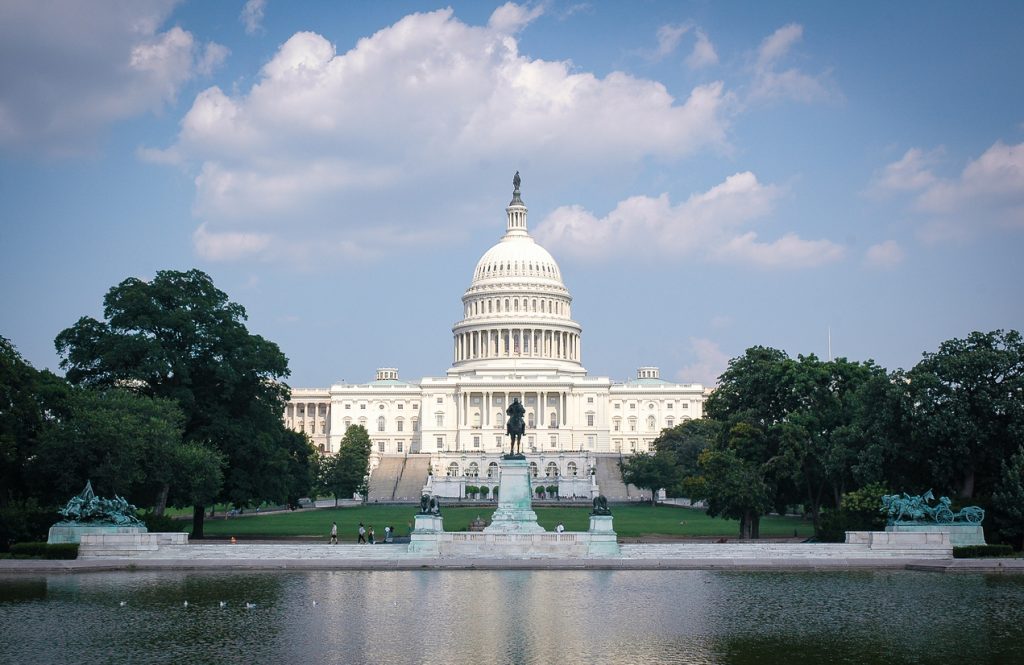President Donald Trump signed a short-term spending bill into law Monday evening, ending a three-day shutdown and restoring funding for the federal government through Feb. 8.
As of Monday, federal agencies are open, according to a notice on the Office of Personnel Management website. Employees are expected to return for work on their next regularly scheduled work day, absent other instructions from their agencies.
“Agencies are strongly encouraged to use all available workplace flexibilities to ensure a smooth transition back to work for employees (e.g. telework, work schedule flexibilities, and excused absence for hardship situations),” OPM said.
A provision in the CR, added by unanimous consent as an enrollment correction, provides retroactive backpay for federal employees. The specific language states “employees furloughed as a result of any lapse in appropriations which begins on or about January 20, 2018, shall be compensated at their standard rate of compensation, for the period of such lapse in appropriations, as soon as practicable after such lapse in appropriations ends.”
Although the shutdown is over, this will not be the last time feds have to endure the threat or possibly the reality of a shutdown.
Here’s why: Senate Minority Leader Chuck Schumer (D-N.Y), along with a number of other Democrats, agreed to support the continuing resolution with the expectation that there will be a vote on the Deferred Action for Childhood Arrivals (DACA) program. The program, among other things, protects some immigrants brought to the U.S. illegally as children from being deported and makes them eligible for a renewable work permit.
Even if Senate Majority Leader Mitch McConnell, (R-Ky.) makes good on his promise to hold a vote on the future of the DACA program, the House has agreed to no such deal. Also, in a statement prior to signing the CR, Trump said, “once the government is funded, my administration will work toward solving the problem of very unfair illegal immigration.” He added that there will be a long-term deal on immigration only if it is good for the country.” Nowhere in his statement did he mention DACA or his thoughts on the program’s future.
With that in mind, feds should at least mentally prepare for the possibility they could be caught in the political crosshairs again in three weeks. Although this time the shutdown ended far earlier than the 16-day fiasco in 2013, it’s already put another damper on morale for some employees.
Dylan McDonald with the National Park Service summed up his feelings in one word: frustrating. “I’ve dedicated my professional career towards bettering the lives of my fellow Americans, as well as visitors to our National Parks from all over the world,” McDonald said prior to Congress passing the CR. “When politicians put party ideology and partisan brinkmanship over the public welfare, they undermine the very foundations of our democracy. The divisive rhetoric erodes the faith and trust of the American public in our democratic institutions. The frustration is palpable, as the most recent elections exemplified. We need to get back to the principles of collaborative government, give and take, and compromise; not my way or the highway authoritarianism.”
Nicole Napuunoa with TSA in Honolulu said, “it is endlessly frustrating that elected officials that we trust to make decisions reflective of their constituents cannot do a basic job function, a foundational task.” She was hopeful that the shutdown would be short-lived and added that despite her frustrations she wouldn’t let them get her down.
GovLoop wants to hear from you. How did the recent shutdown impact you, and what are your thoughts on the current cycle of short-term appropriations to fund government? Share your thoughts in the comment section below.
